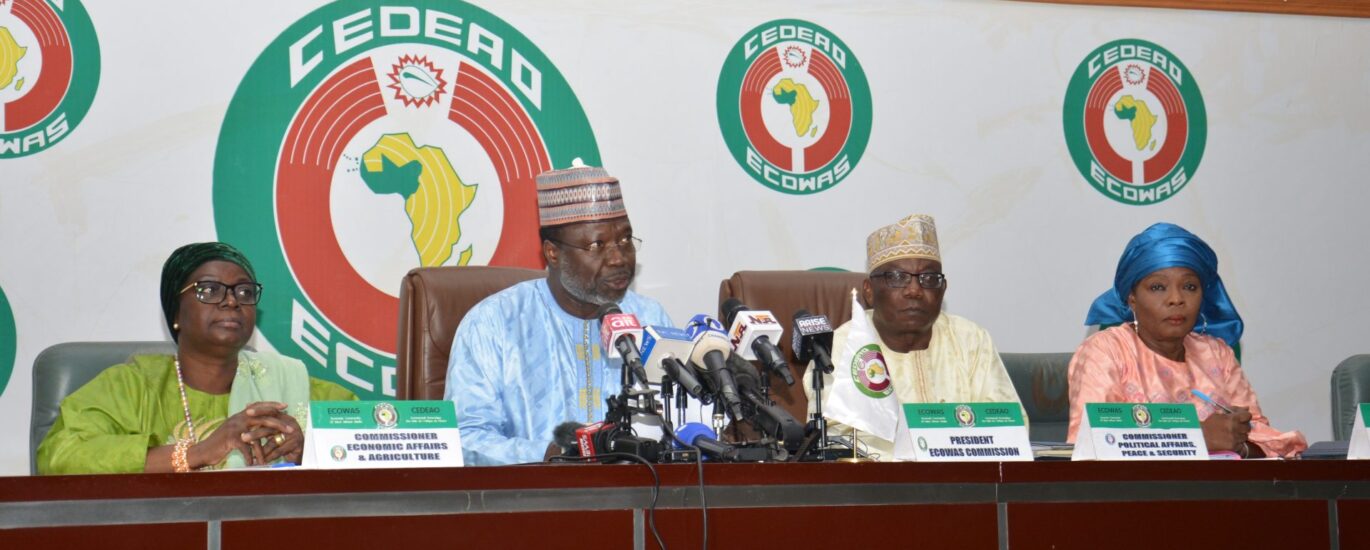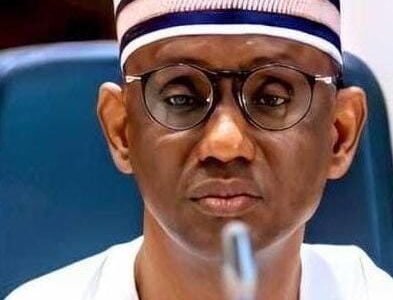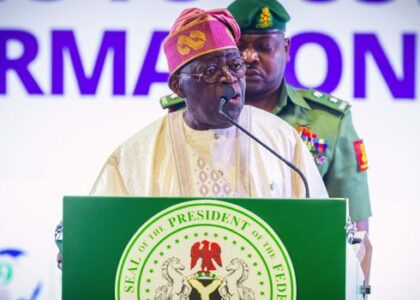Since the 26th day of July, 2023, when President Bazoum was dethroned by his own guards, all eyes have been on Niger, except that ECOWAS stole the attention and has retained it since its extraordinary meeting of 30 July 2023 and its needless issuance of threat of military action.
The truth is that no one likes military coup, given that it is an aberration that forcefully takes over power and uses same without being accountable to the people. By necessary corollary, if everyone so hates military coups, so must civilian coup delivered in the guise of elections that are manipulated, be hated and universally condemned.
The Niger situation presents a huge dilemma that with sore spots and raw sentiment, some of which transcend the Niger situation. There are those who are not backing ECOWAS because they see double standards in its approach to unconstitutional takeover of power through a manipulated ballot; and an unconstitutional take over of power through the barrel of the gun. There are others who see the coup and the other recent coups in the region, all of which are in the francophone zone, as a revolt against the overbearingness of France in its previous colonies. There are also others who believe that a poor handling of the situation would do more harm to the region; Niger and its neighbours than the military Junta can ever do. There are yet others who believe it behooves ECOWAS to resolve this matter by all means necessary, even if by military action, to signal ECOWAS’ renewed zero tolerance for unconstitutional change of government. The fact that none of these angles is without significance in real term underlines the fragility of the Niger situation and to these must careful consideration be given by ECOWAS in its determination to restore President Bazoum to power. This, it must demonstrate by removing the option of military action from the table.
Unfortunately, as long as military intervention is still an option, it is safe to say that ECOWAS is either not considering the big picture, or has decided to be reckless, nonetheless. This is even in the face of the ominous signs everywhere and the vehement objection to military action against Niger, from both within and outside ECOWAS.
The press conference granted by the President of the ECOWAS Commission in Abuja on 25 August, 2023, is highly commendable. Unfortunately, rather than douse the tension,the President appears to have further heightened the possibility of military action when he underlined that ECOWAS “will continue to pursue diplomatic initiatives towards the restoration of constitutional order in the Republic of Niger without compromising the option of the deployment of the regional standby force” and that “The ECOWAS Authority of Heads of State and Government has only activated a full-scale application of sanctions which includes the use of legitimate force to restore constitutional order”. While it is comforting to hear that ECOWAS will continue to pursue diplomatic initiatives, it is sad to see how the President of the Commission immediately deemphasised peaceful initiative by doubling down on the threat of military action. This sort of double speaking has characterised ECOWAS’ approach to this situation since its extraordinary summit of 30 of July, 2023. As we have had cause to mentioned previously, ECOWAS should not allow the very provocative behaviour of the junta (such as the expulsion of diplomats from ECOWAS member States) to goad it into taking actions or making statements that would further complicate an already knotty situation.
It is good that the President of the Commission tried to distinguish between military intervention by ECOWAS and declaration of war, and was indeed very correct to say that such intervention would not be a declaration of war, as it will be in line with Niger’s obligations under ECOWAS laws. While that is indeed so, on paper, the difference between such axiomatic theoretical distinction is not possible to draw in practice, especially when dealing with a majorly illiterate population, many of whom have no scintilla of knowledge of ECOWAS. That, in itself, puts Nigeria at the receiving end of the anger of the Nigerien population, who will see this as a Nigerian war against them.
The question is, what exactly did he think the Nigeriens would call any form of military action against the country? Perhaps, he is not aware that, following the statement by Burkina Faso and Mali, that any use of force in Niger will be considered an act of war, the two suspended member States have now actually gone ahead to obtain the consent of the Nigerien Junta to intervene should ECOWAS attempt to deploy force in Niger. Perhaps, ECOWAS is also not aware of the strong objection Algeria and Egypt have raised against any military action in Niger.
The fact that ECOWAS would not back down in its threat of military action in the face of the vehemence and abundance of objections from ECOWAS citizens, and African States (the African Union has not issued any military threat), even though the economic realities and insecurity in ECOWAS States do raise concern as to the ability of the bloc to prosecute any military intervention at this time, has led many to wonder whose rhythm ECOWAS is dancing to.
These have perhaps led many to describe the situation as that of the voice of Jacob but the hands of Esau to the effect that the Western powers (the United States, France and Britain) that have openly supported military intervention and (the United States, France) do actually have bases in Niger are those cheering ECOWAS onto the deployment of military action in Niger.
Although we have no independent confirmation of the involvement of these powers, we yet feel compelled by the abundance of caution to remind ECOWAS that the West does nothing except for its self-interest. ECOWAS needs to first ask itself if it will be in its best interest to start a war in Niger for the satisfaction of the West. Our leaders must look at Libya and remind themselves that it is never possible to tell the real intention of the West in an intervention of this nature until they have the opportunity to get boots on the ground or airplanes in the air.
African leaders owe it to the African people to see any Western military activities in Africa through the lens of Libya. History reminds us that on 17 March 2011, the United Nations Security Council (UNSC) approved Resolution 1973 authorising the use of force against Libya. The UNSC Resolution never approved regime change; it only and unequivocally authorised the use of force for two and only two purposes: “to protect civilians … under threat of attack” and to enforce a no-fly zone. We believe it was on these bases that neither China nor Russia vetoed the Resolution but simply abstained. We are not in doubt that had regime change been on the table, China or Russia would have vetoed the Resolution as Russia did concerning certain Resolutions regarding Syria.
In fact, This was also confirmed by the British David Cameron and the French Nicholas Sarkozy.
No sooner NATO boots got on the ground in Libya, and airplanes in its skies than the true intention of the West unfolded: it was not all about protecting civilians but also to remove Gadhafi. They achieved their aim very quickly and left the Sahel region to suffer unending consequences of insecurity and organised crimes. NATO justified its action by the usual catchphrase, such as we are hearing respecting Niger today, that their action was so that “the Libyan people can choose their own future”, “Qaddafi must go and go for good”. It had become clear that America, France and Britain had this in mind all along. Gadaffi is gone for good, what has refused to go are the death, chaos, instability, destruction, territorial occupation by terrorists, organised cross border crimes and poverty that NATO bequeathed to the Libyans and the Sahel region.
Notably, the President of the ECOWAS Commission has also justified ECOWAS’ stance by ‘’we remain on the side of the people of Niger. We just think it is fair for them to enjoy democracy, freedom that we are all enjoying. The people of Niger deserve to move freely within the community. So whatever ECOWAS is doing is being done in the interest of the people of Niger and the people of the ECOWAS region’’. We can only hope the Commission has a plan for any succeeding eventuality, should it successfully restore President Bazoum by the use of force.
It may also be that ECOWAS has come to the conclusion that the only chance, however slim, of restoring President Bazoum is by military action. If that is the case, it cannot but highlight the point analysts have continuously made that ECOWAS has really not made the needed progress in its integration agenda since 1975. If the Authority of Heads of States and Governments has put only even half of the efforts it is now investing in fighting coups in performing their ECOWAS obligations and complying with the laws they themselves made, ECOWAS would have had a compelling aura, such that no member State would dare risks isolation from ECOWAS. But what we have had is successive crop of leaders who are averse to the rule of law and to compliance with their ECOWAS obligation, but are very good at pointing fingers at others and grandstanding.
Whatever the case, may be and as the President of the Commission rightly stated, “The precedents in Mali, Guinea and Burkina Faso are unsettling and underline the reason why the Community was obliged to take such a hard but legitimate stance, backed by the ECOWAS Community law which I must stress again was subscribed to by all the Member States, including Niger Republic.” Therefore, except for the fact that the threat or use of military option cannot be supported at this time, ECOWAS is well within its right to deal very harshly with the Junta and put an end to this madness of coup plotting. Unfortunately, whatsoever steps ECOWAS is taking is serious blighted by the perceived and real absence of true democracy in the region and the silence of ECOWAS when political leaders employ the services of security agencies, including the same military that eventually overthrow them, to rig elections; or perpetuate themselves in office; or suppress opposition in clear and flagrant violation of ECOWAS Protocol Relating to the Mechanism for Conflict Prevention, Management, Resolution, Peace-Keeping and Security, 1999, as supplemented by Protocol A/SP1/12/01 on Democracy and Good Governance, 2001.
It is not too late for the ECOWAS Commission to start taking action, even through the ECOWAS Court, to compel the member States to converge around the constitutional convergence principle of the 2001 Protocol. Enough of the kettle calling the pot black! Let’s end with the teeth and tongue analogy earlier made, by reminding ECOWAS that though we do not like it when the teeth bite the tongue, yet we do not chop off the tongue for biting the teeth.







